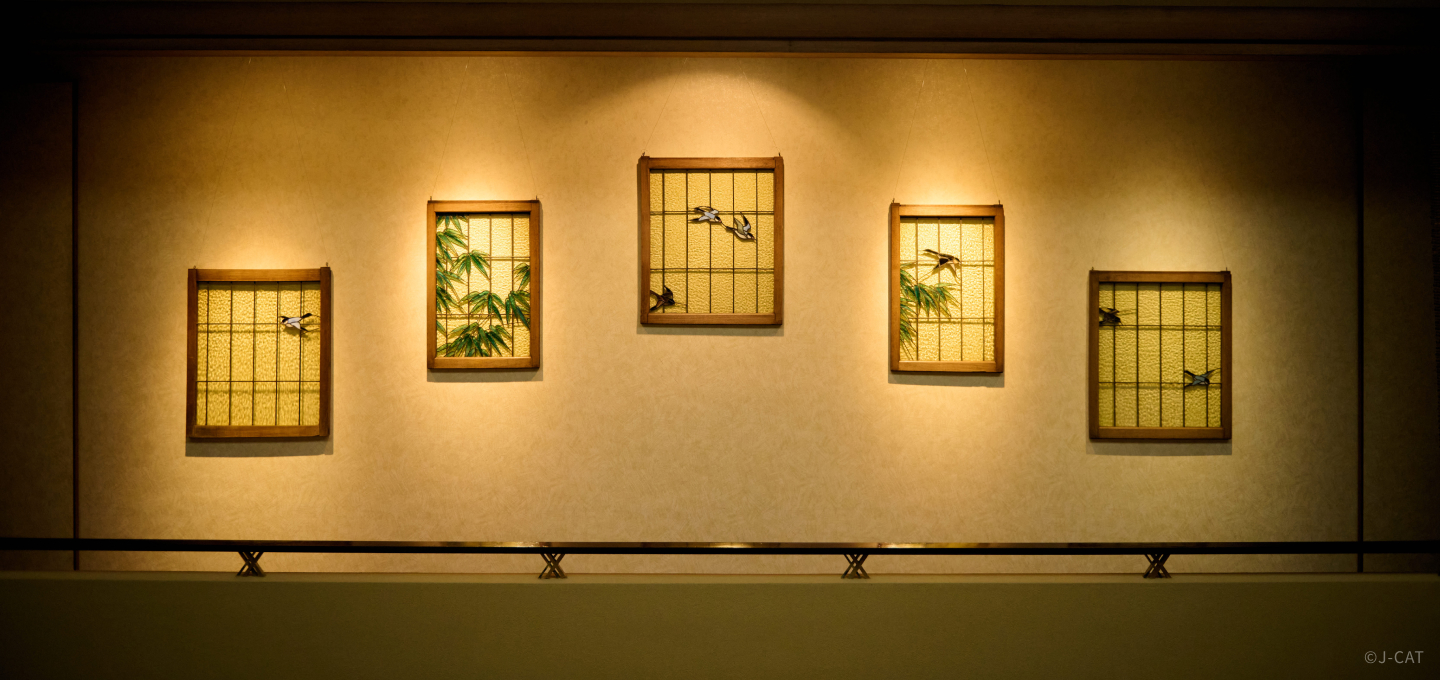
Special Experience
Tokyo
Meet a Professional Kabuki Actor at One of Tokyo’s Most Prestigious Traditional Restaurants and Learn Kabuki Acting Techniques
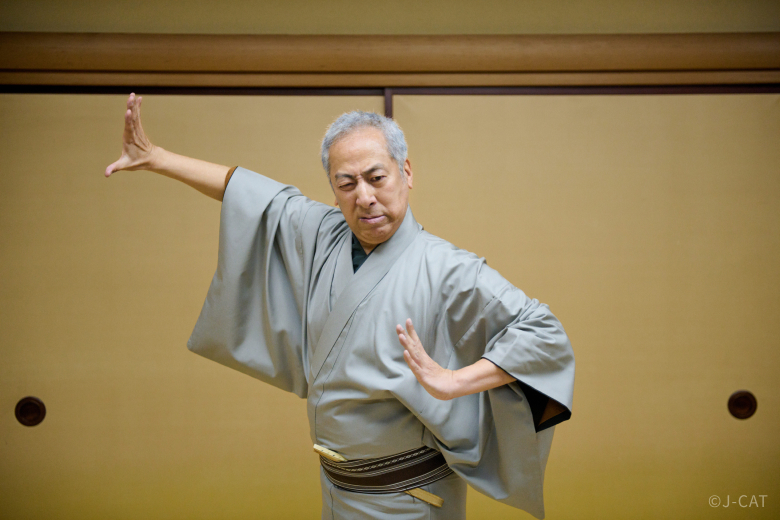
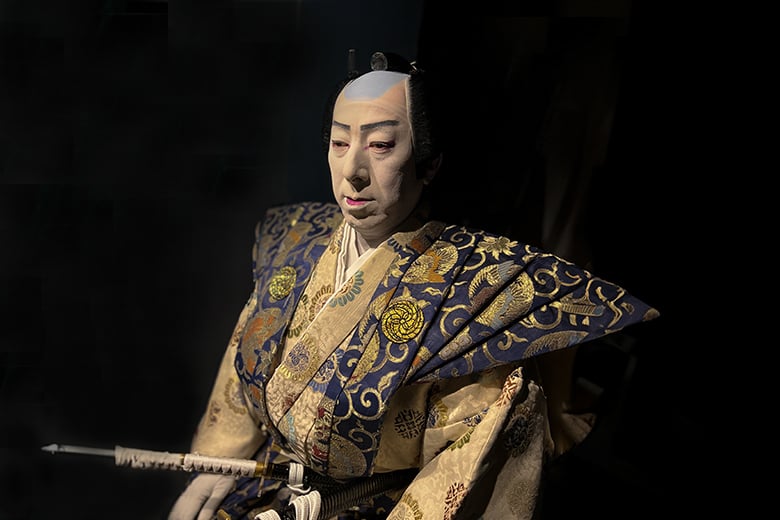

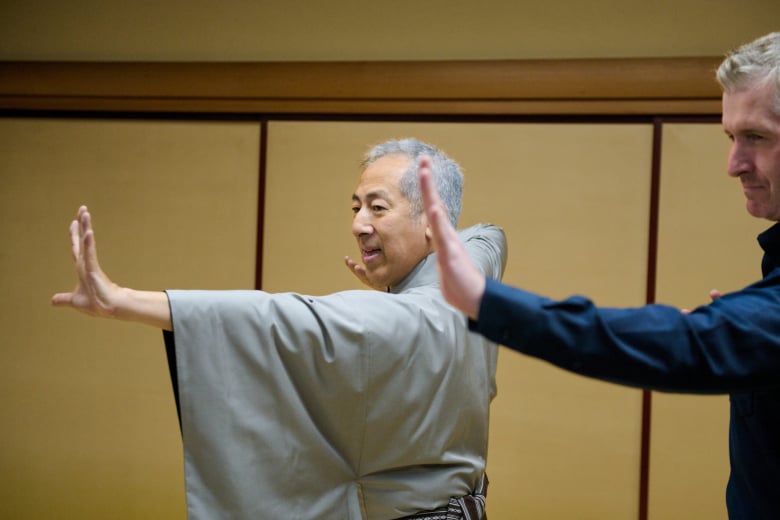
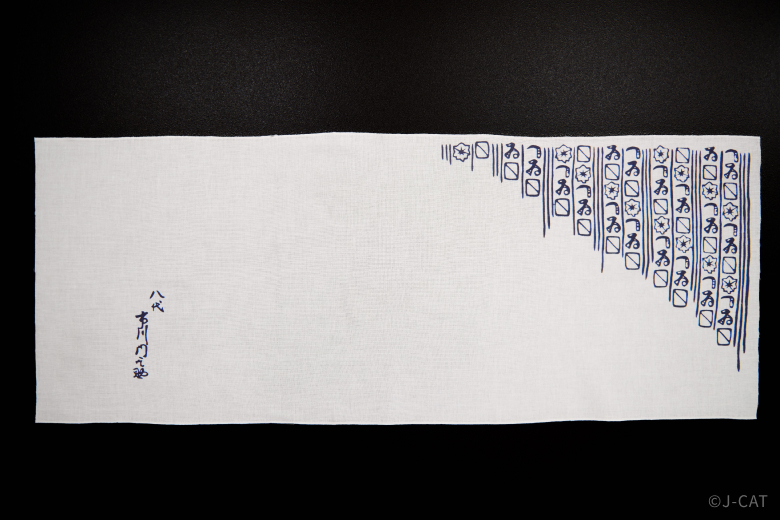
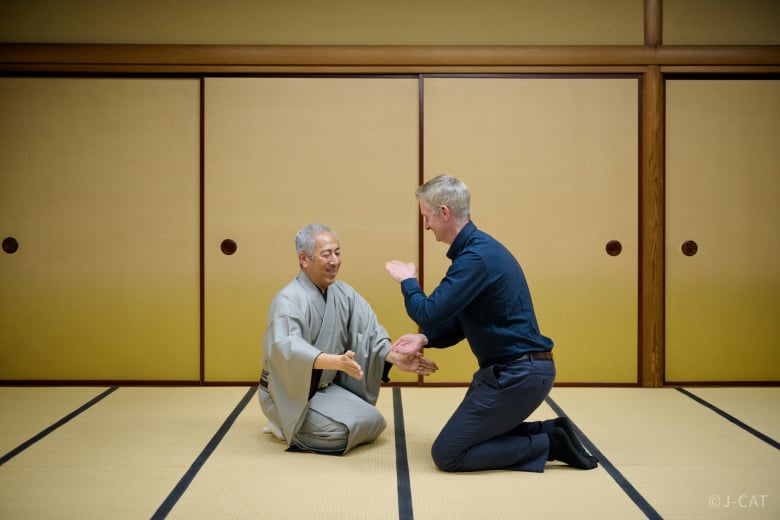
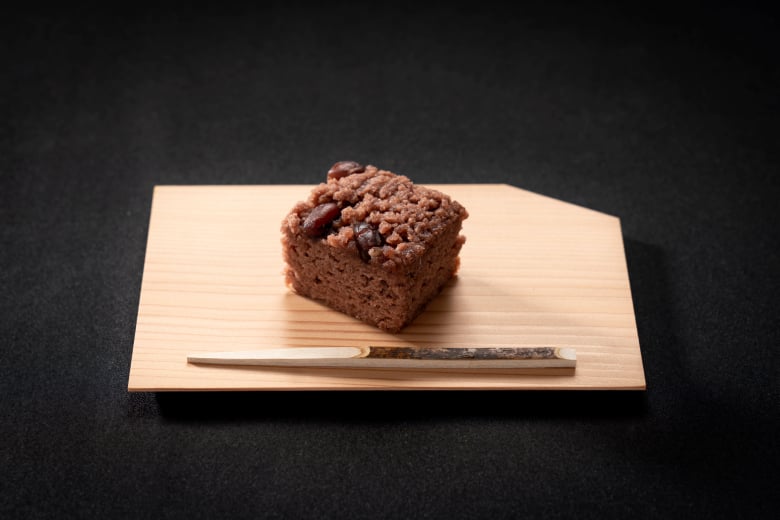
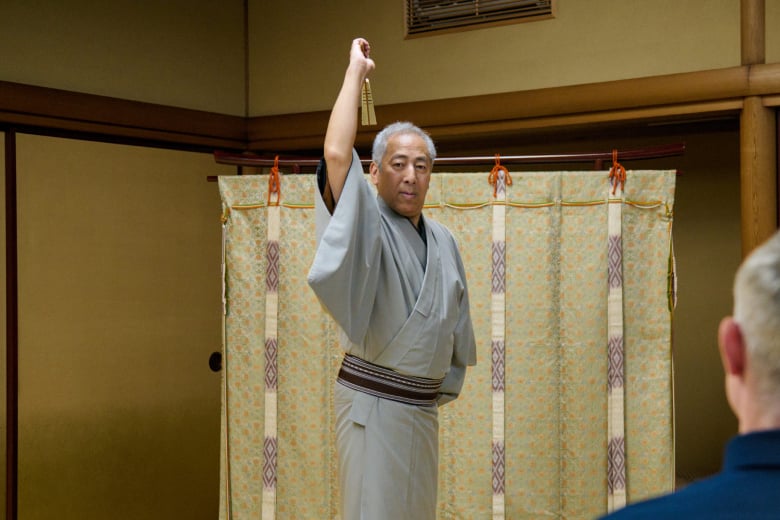
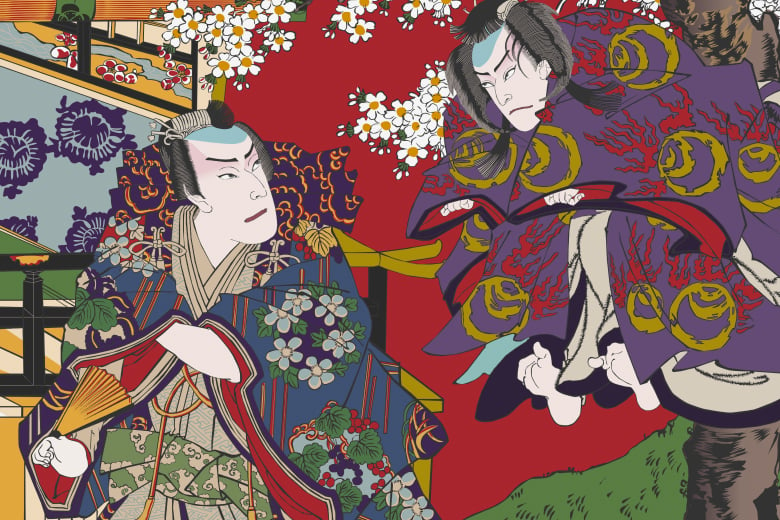
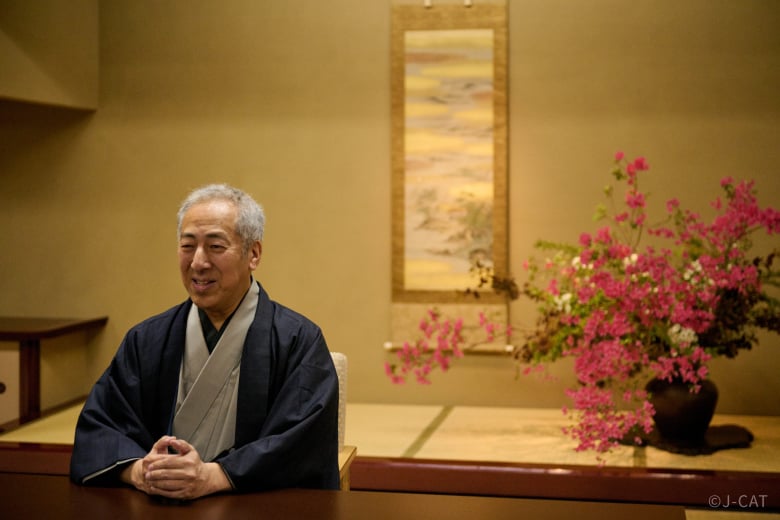

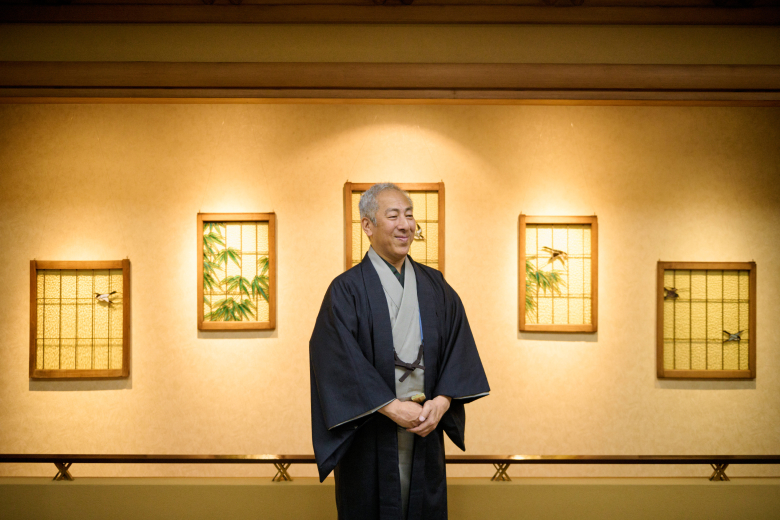
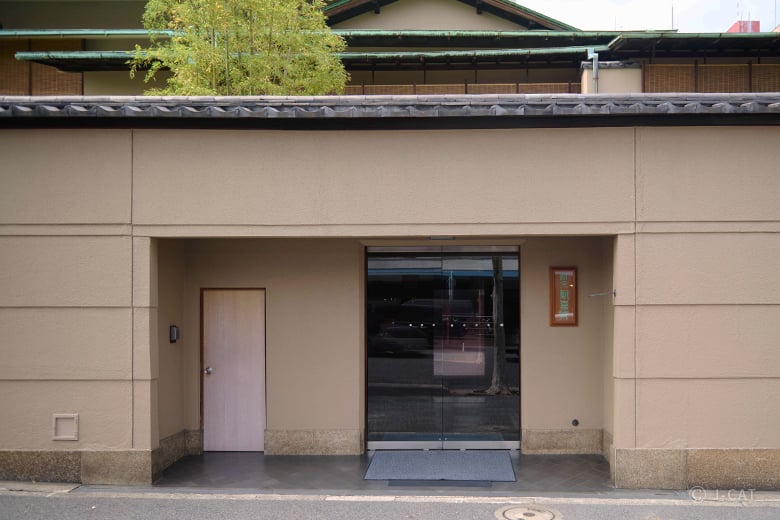













Overview
With its colorful costuming, striking makeup, and dramatic stagecraft, kabuki is easily one of the most iconic and dynamic traditional arts of Japan.. For those keen to better understand this iconic Japanese dramatic art, this exclusive Wabunka experience provides the opportunity to spend time with professional kabuki actor Ichikawa Monnosuke VIII to learn kabuki acting and training techniques in a private interactive workshop. This workshop will be held at one of Tokyo’s most prestigious traditional Japanese ryotei restaurants and includes a sumptuous kaiseki meal.
Key Features
・Meet Monnosuke to learn about the dramatic art of kabuki and the life and work of a professional kabuki actor
・Learn kabuki acting and training techniques from Monnosuke in a private interactive kabuki workshop
・Enjoy a kaiseki meal at a traditional Japanese ryotei restaurant
*An additional fee will be charged for groups of three or more. Please select the additional fee option at the time of payment.
Tokyo
150mins
from ¥254,100 /group
1 - 10 participants
Available in English
Cancel free up to 31 days prior
Details
The Grandeur and Spectacle of Kabuki Theater
When kabuki first emerged in the early Edo period (1603-1868), it was quickly embraced by the local population as more dynamic and entertaining than older traditional Japanese dramatic forms. On the kabuki stage, characters are presented as larger than life, clad in colorful costumes and frequently adorned with striking kumadori makeup, composed of a white base and bright stripes or patterns. The spectacle is further enhanced with musical accompaniment along with devices such as trapdoors, revolving stages (mawari-butai), and wires for “flying” through the air.
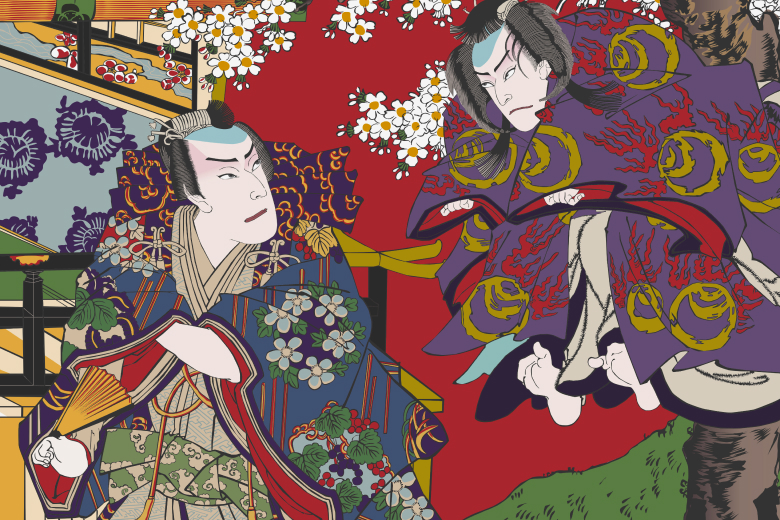
An ukiyo-e print portraying kabuki actors in a scene from the historical play “Yoshitsune Senbon Zakura,” one of the most iconic works of Edo period (1603–1868) kabuki.
Since the mid-1600s, kabuki has been performed by all-male groups, with male actors taking on female roles known as onnagata as well as representing male characters or supernatural beings such as kami (gods) or oni (demons). Because the Tokugawa shogunate banned plays from portraying contemporary society, kabuki plays known as jidaimono (history plays) tend to be set in Japan’s remote past. Some jidaimono, however, contain thinly-veiled references to Edo-period events, like the famous Kanadehon Chushingura, which clearly parallels the famous revenge of the 47 ronin on January 31, 1703.
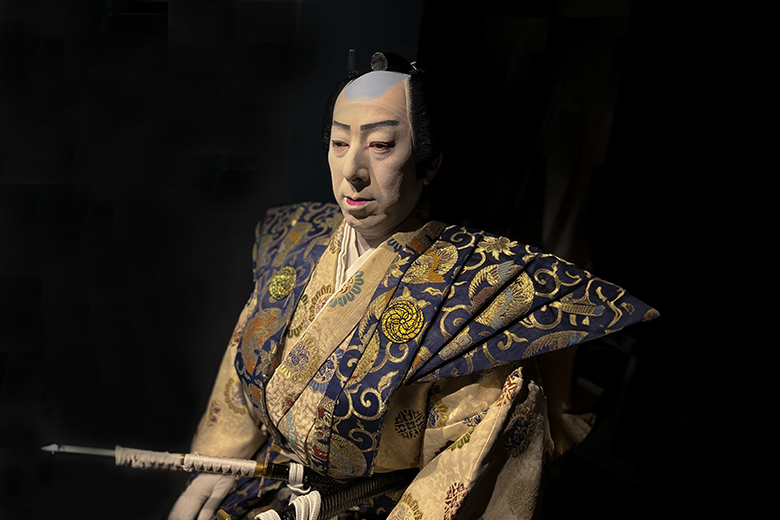
The makeup and costumes of kabuki are incredibly colorful and elaborate, transforming the performer into the character
Meet Kabuki Actor Ichikawa Monnosuke, Eighth of His Name
As with many practitioners of the traditional arts in Japan, kabuki actors often inherit their stage names from their predecessors, usually their father or an instructor or mentor. In this exclusive Wabunka experience, you will meet kabuki actor Ichikawa Monnosuke VIII, who assumed his current name after his father Ichikawa Monnosuke VII passed away in 1990, carrying a centuries-old tradition of acting into the future.
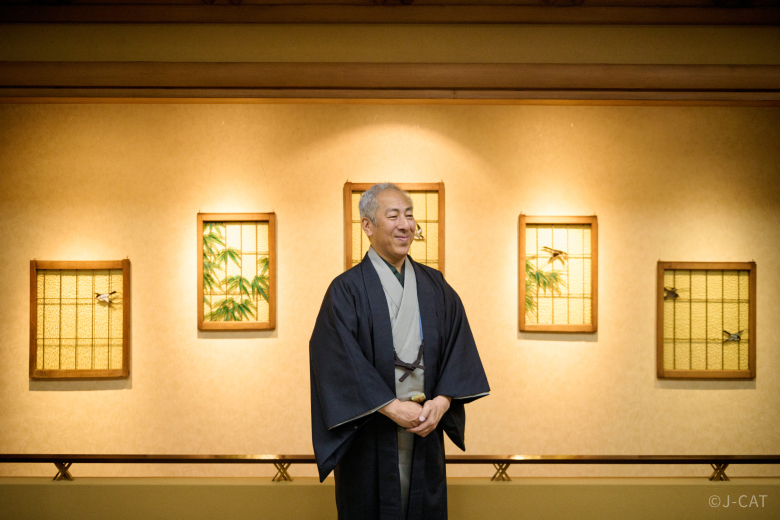
Ichikawa Monnosuke is the eighth of his name in a line of kabuki actors stretching back more than 200 years
Having first appeared on stage at the age of five,Monnosuke possesses a lifetime of top-level professional kabuki experience, including leading roles in epic jidaimono such as Yoshitsune Senbon Zakura and in sewamono plays, which tend to focus on domestic situations faced by commoners. Monnosuke’s range as a performer is astonishing, with the actor having portrayed warriors, merchants, oni (demons), and kami (gods), as well as female onnagata roles such as princesses and old women. He has also appeared in the modern genre known as Super Kabuki.
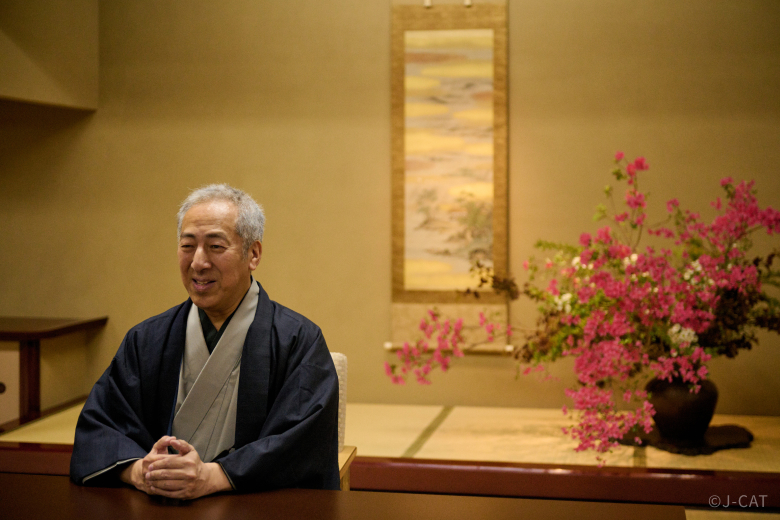
Monnosuke speaks about his lifelong calling with great humor, poise, and passion
Monnosuke speaks about his lifelong calling with great humor, poise, and passion
On trips to Hawaii as a young man, Monnosuke was surprised to find an abundance of kabuki theaters established by Japanese immigrants in the late 19th and early 20th century. Tours of Europe, North America, and Asia further impressed him with the power of kabuki to transcend borders and interest people from all over the world in Japanese art, culture, and history. These revelations later inspired Monnosuke to spend time teaching kabuki at the University of Hawaii and make every effort possible to pass what he has learned about the art form on to the next generation.
Learn Acting Techniques from a Master Kabuki Actor
To demonstrate the fundamentals of kabuki, Monnosuke will provide you with a personal demonstration of different ways to play both male and female on-stage roles. It is quite extraordinary to observe the master kabuki actor at work, transforming himself in the blink of an eye into a character from a far-off world, all without the aid of costume or makeup. Your workshop with Monnosuke will take place in the large main hall of the high-end traditional ryotei restaurant, with its tatami mats and classic Japanese decor providing the perfect setting.
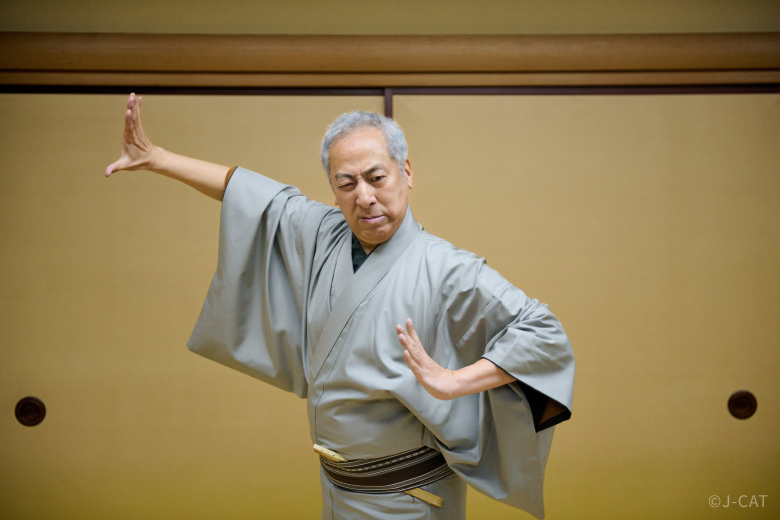
As a consummate kabuki actor, Monnosuke can instantly transform his features into the famous mie pose to portray different character types
The highlight of this demonstration is the iconic mie pose, a unique feature of kabuki in which the actor freezes in place, often with eyes crossed to convey the intensity of his emotions. After demonstrating the ferocity of the mie for you, Monnosuke will invite you to join him and guide you through the steps of “cutting” a classic mie pose.

Monnosuke will personally guide you through the steps of “cutting” a classic mie pose
Appreciating the Space Between: Training Techniques for Kabuki Actors
Many stage acting traditions worldwide use theater games or similar training techniques not for direct use on stage but to sharpen the actor’s senses around rhythm, space, and timing. Such skills are particularly vital in kabuki, which involves incredibly complex overlapping patterns of movement, speech, stagecraft, narration, and music. Such exercises also impart an appreciation of “ma,” the Japanese concept that emphasizes the importance of empty space within art, drama, and music.
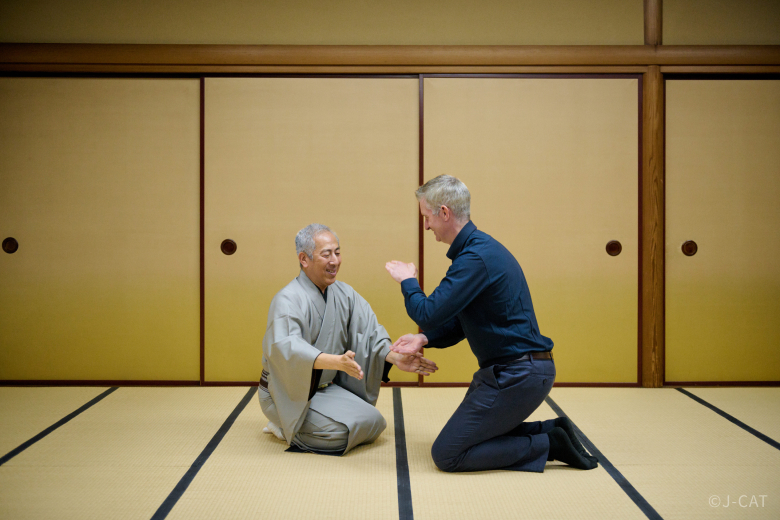
Omochi o Tsukimasho is one game used to teach basic kabuki concepts like rhythm, timing, and spatial awareness
To better understand how kabuki actors develop such advanced dramatic awareness, Monnosuke will share a game used by novice kabuki actors in their training with you. Known as Omochi o Tsukimasho, the game mimics the traditional method of preparing mochi from rice by pounding it with a wooden mallet. While Monnosuke recites the words of the accompanying song, he will show you the hand movements involved, which soon become quicker and more challenging, truly helping you to appreciate the complexities of the actor’s vocation.

You may also learn that becoming a kabuki actor is no simple overnight endeavor
Dine at One of Japan’s Finest Traditional Ryotei Restaurants
The opportunity to dine at a traditional ryotei restaurant involves much more than a fantastic meal in attractive surroundings, it is a unique cultural experience in and of itself. The ryotei where you will meet Monnosuke and dine after your kabuki workshop is a high-end traditional Japanese restaurant that has been recognized as one of the Three Great Ryotei of Japan, offering a sophisticated ambience with private rooms, servers dressed in full kimono, and multi-course kaiseki meals. Founded in the 19th century, it has been run and maintained for over 100 years.
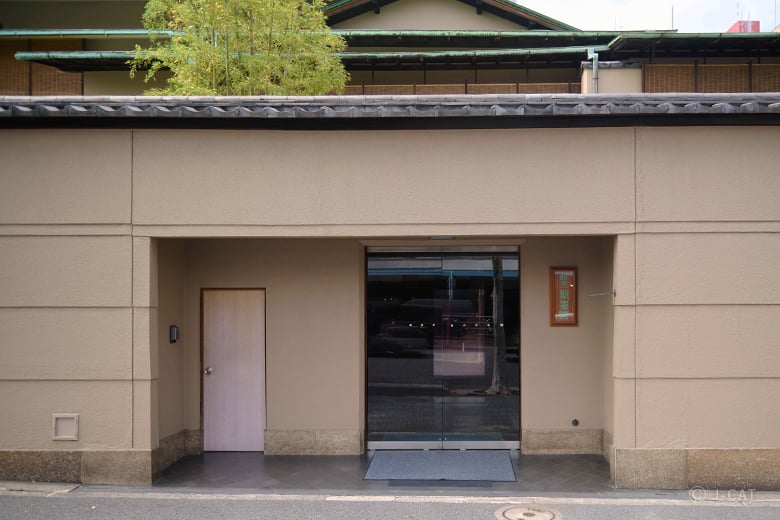
The restaurant’s unassuming exterior conceals the elegance and hospitality to be found inside
Upon arrival, you may find the exterior of the building disarmingly unassuming, but this merely conceals the elegance within. Your kabuki workshop with Monnosuke will be held on the first floor, where you can admire the classic traditional Japanese decor that includes such delights as large seasonal flower arrangements and makes the most of the simple beauty of ma—the spaces in between.
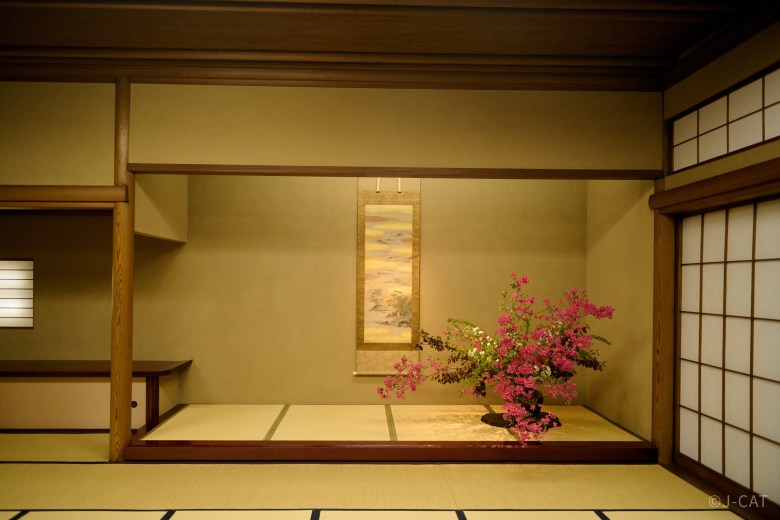
The interior of the ryotei features classic traditional Japanese decor such as seasonal flower arrangements
Following the end of your workshop with Monnosuke, you will proceed to a meal served in multiple courses in traditional kaiseki style, with dishes delivered in succession by servers in full kimono. Being so close to Tsukiji, the former site of Tokyo’s world-famous fish market, seafood is generally well-represented among the dishes provided, using the freshest and most delectable seasonal ingredients. Feel free to take your time over the meal—dining here is an experience well worth slowing down to savor (drinks are not included in the experience fee).
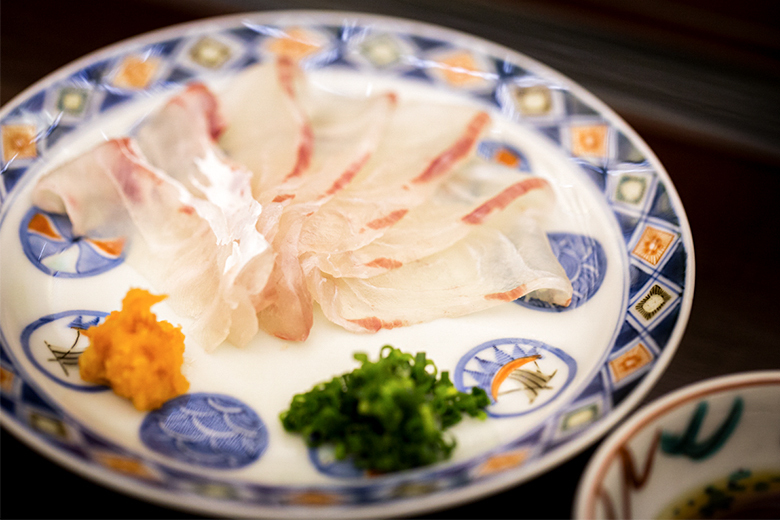
With the former site of Tokyo’s former world-famous Tsukiji Market nearby, only the freshest fish is served
An Intimate Encounter with the Timeless Art of Kabuki
While Monnosuke is a practitioner of one of Japanese most timeless and revered traditions, he nonetheless views kabuki’s ability to adapt and evolve as one of its greatest strengths. “Everything must be built on a foundation of tradition,” he explains. “But that does not mean that we should stop innovating or incorporating new ideas. That is something kabuki has always done, since its earliest beginnings—and one of its greatest strengths.”
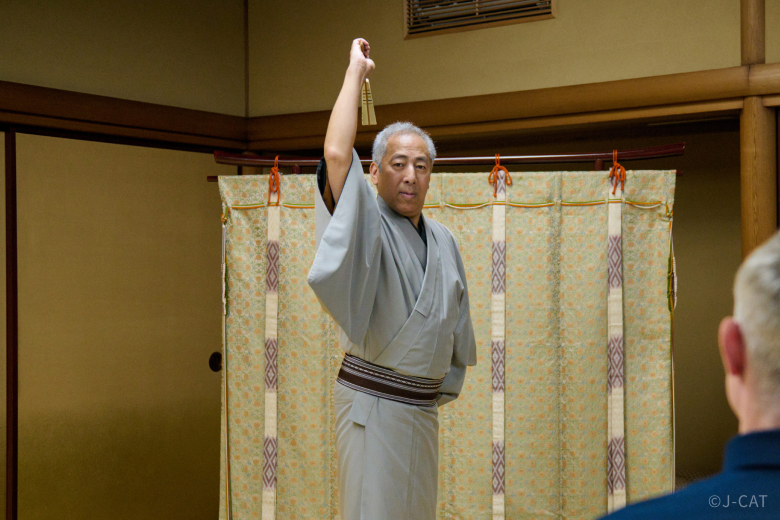
Monnosuke believes that a balance of tradition and innovation is the way forward for kabuki
Through this intimate encounter with an experienced kabuki actor, you too will participate in this centuries-old dramatic art, learning some of the fundamental techniques used by its practitioners to this day. You will also go home with a gift of traditional wagashi sweets from Mannendo, a confectionery that has been in business for over 400 years, as well as a custom Japanese tenugui cloth from Monnosuke, the perfect memento of your encounter with a living practitioner of kabuki, Japan’s best-known and best-loved dramatic tradition

You will receive this custom Japanese tenugui cloth and traditional wagashi from Monnosuke as a memento of your kabuki encounter
Ichikawa Monnosuke VIII

Ichikawa Monnosuke VIII
Ichikawa Monnosuke VIII is a top professional kabuki actor who has performed for decades in major kabuki productions in Japan as well as on tours of Europe, North America, and Asia. Monnosuke’s lifelong passion for his dramatic art previously led to a kabuki teaching position at the University of Hawaii as well as providing motivation to create this exclusive Wabunka kabuki experience.
Location
Japanese ryotei restaurant
Chuo Ward, Tokyo
Request for booking
Select first preferred date (JST)
February 2026
Sun
Mon
Tue
Wed
Thu
Fri
Sat
Instant Booking
Request Booking

17
Full

17
Unavailable
- Instant Booking: Your reservation is confirmed immediately upon payment.
- Request Booking: You will receive confirmation after the host reviews your request.
Tokyo
150mins
from ¥254,100 /group
1 - 10 participants
Available in English
Cancel free up to 31 days prior
Things to know
Contact Us
If you have any questions, please contact us using the form below.
We also accept bookings from corporate clients and travel agencies.